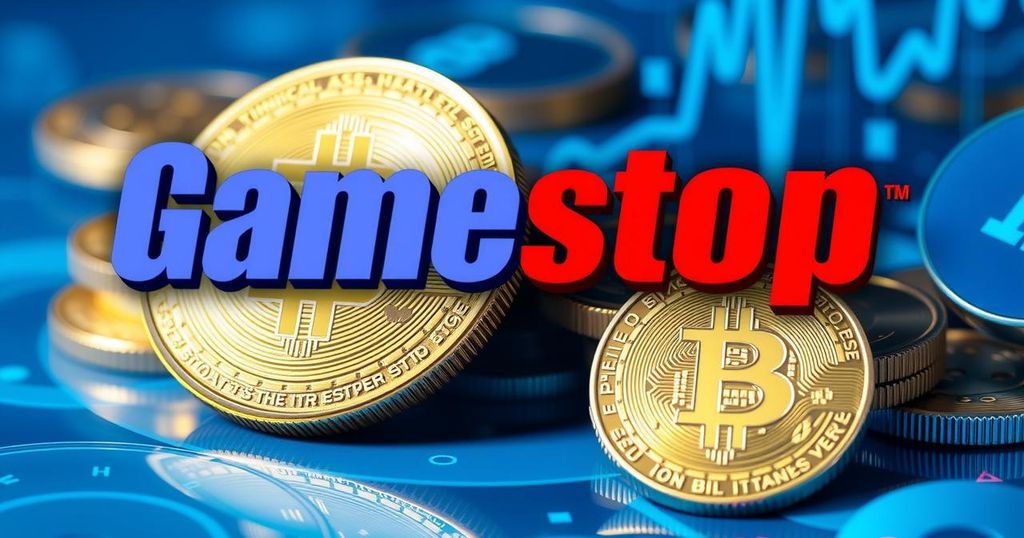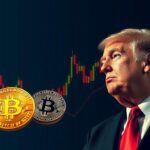Will GameStop’s Bitcoin Investment Propel BTC to $200K?
GameStop’s decision to allocate funds to Bitcoin amid institutional interest raises questions about Bitcoin’s stagnant price, which remains under $100,000. Despite favorable regulatory changes, traditional financial integration and hesitance from major banks limit Bitcoin’s growth potential. The current landscape reflects a cautious approach towards cryptocurrency investments, suggesting that without broader market acceptance, Bitcoin may struggle to reach the $200,000 milestone.
Despite a surge in institutional interest, Bitcoin (BTC) has struggled to regain the $100,000 threshold for over 50 days, prompting investors to analyze the underlying bearish trends. This downturn is perplexing, particularly after the US Strategic Bitcoin Reserve executive order, authorized by President Donald Trump, which supports BTC acquisitions under ‘budget-neutral’ conditions.
On March 26, GameStop Corporation (GME) announced plans to invest a portion of its corporate reserves in Bitcoin. Having emerged from a near-bankruptcy situation in 2021, GameStop now possesses $4.77 billion in cash and equivalents as of February 2025, showcasing a dramatic turnaround following a historic short squeeze.
Numerous companies, both US-based and international, adopt Michael Saylor’s strategy, including Metaplanet, which has appointed Eric Trump to its strategic advisory board. Additionally, MARA Holdings has initiated a policy to retain all Bitcoin and expand its exposure through debt offerings, reflecting increased industry commitment to cryptocurrency.
Despite positive developments, Bitcoin investors exhibit selling behavior, especially given gold’s performance, which nears its all-time high. The pro-crypto shift in US policy post-Trump’s election contrasts with the insufficient infrastructure needed for Bitcoin to integrate into traditional finance as collateral.
The current US spot Bitcoin exchange-traded fund (ETF) system restricts cash settlement only, limiting in-kind transactions. Yet, upcoming rule changes under consideration by the US Securities and Exchange Commission could enhance tax efficiency and potentially promote broader adoption of Bitcoin.
Major banks, including JPMorgan, operate primarily as custodians for crypto-related products, and the SEC’s repeal of strict capital requirements does not guarantee a wider cryptocurrency embrace. Institutions like Vanguard still limit client access to spot Bitcoin ETFs, and many financial advisors remain unable to facilitate cryptocurrency investments, contributing to market hesitance.
The regulatory landscape for Bitcoin derivatives lacks clarity, prompting most exchanges to avoid North American participants and to register in tax havens. The Chicago Mercantile Exchange (CME), though growing, retains only a fraction of Bitcoin futures participation relative to competitors with looser regulations.
In conclusion, while institutional interest, including GameStop’s strategic investment in Bitcoin, could signify upward pressure, it is insufficient to drive Bitcoin’s price to $200,000. The ongoing challenges surrounding regulatory clarity, traditional financial integration, and the market’s cautious atmosphere underline the limited upside potential for Bitcoin until substantial improvements are realized in these areas.
Original Source: cointelegraph.com








Post Comment